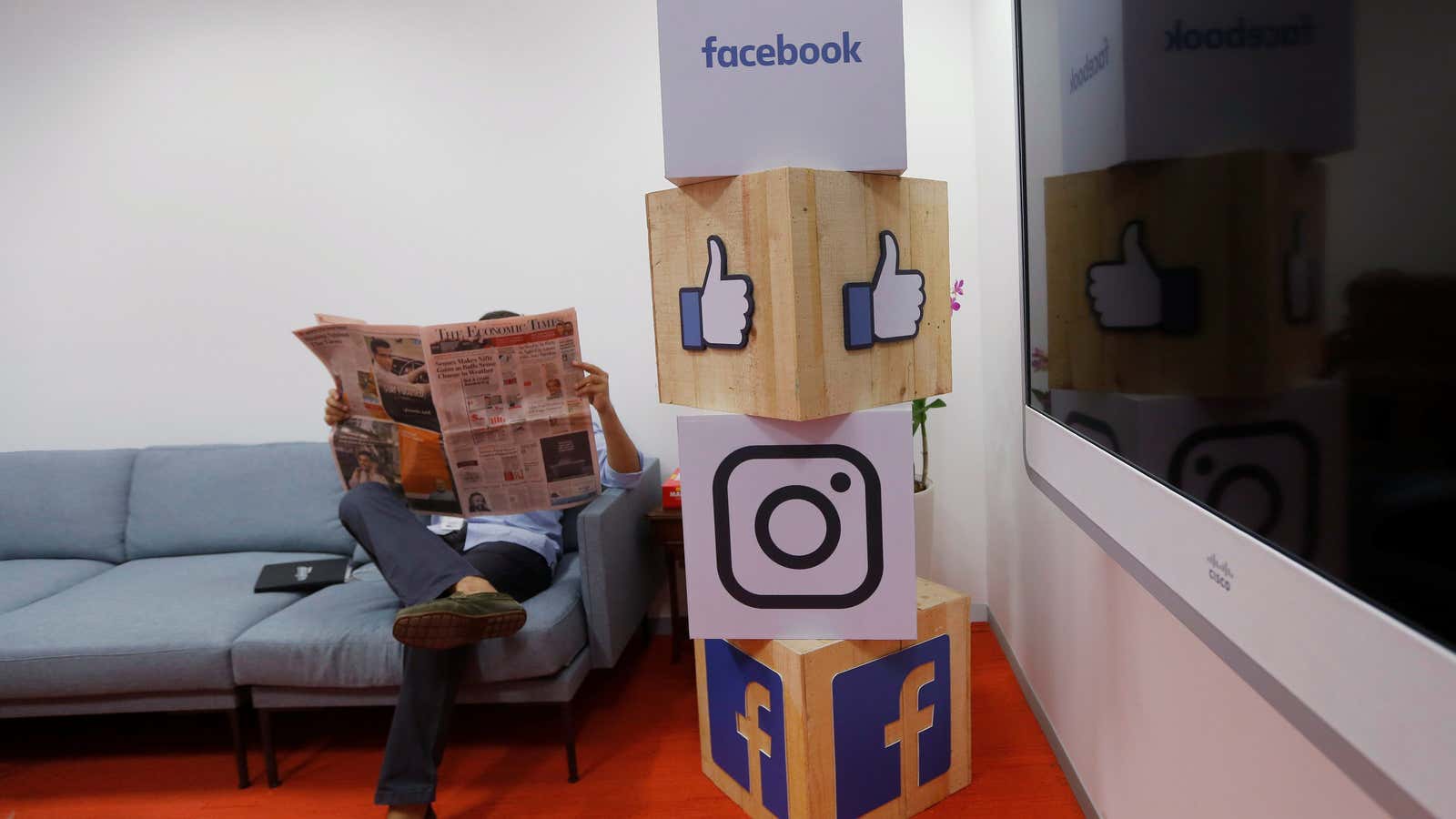Facebook is following Google’s lead in trying to cut the profits companies make from publishing fake news. It has just banned fake news publishers from joining its advertising network, according to its policy on publisher conduct.
Fake news joins pornography and gambling among the things that Facebook prohibits in its Facebook Audience Network. The new policy states publishers are banned from the network if they show:
content that is illegal, misleading or deceptive, or that promotes regulated goods, pornography, adult products or services, casual dating, violence, weapon sales, online real money games of chance or skill, work-at-home schemes, spy cameras, fake news or anything that falls within any other categories that are prohibited by the Facebook Community Standards, with the exception of apps or sites that display news editorials featuring the above content or if you have our prior written permission.
The network allows publishers with their own sites or apps to show ads from 4 million Facebook advertisers. This lets publishers monetize their content, and gives Facebook a way to distribute their clients’ messages more widely. Facebook’s policy was updated on Monday (Nov. 14), according to the Wall Street Journal, which first reported this news.
However, the advertising ban won’t directly affect the distribution of fake news through Facebook’s News Feed, which is in the spotlight after the US election. It’s the News Feed algorithm that publishers of false anti-Hillary Clinton content—like enterprising teens in Macedonia—appear to have successfully gamed to ensure their stories go viral. Chief executive Mark Zuckerberg has dismissed the notion that Facebook may have influenced the election as “a pretty crazy idea.”
The new ban highlights an inconsistency in the tech giant’s position on fake news. Facebook has said that it lacks the ability to effectively detect “misinformation” in its News Feed and that it’s working to improve on it. Yet the advertising ban would require Facebook to filter out precisely the publishers of such content.
The ban also mirrors Google’s, which said Nov. 14 that it would restrict ads from being displayed on fake news sites through its AdSense network.
Facebook’s publisher guidelines say apps on its ad platform are checked by an automated process and then inspected manually. We’ve asked Facebook how it intends to identify publishers of fake news but haven’t immediately heard back.
Google and Facebook may have figured out how to turn free information into massive profits. But even if information wants to be free, we all benefit when some of it is subjected to checks and balances.




